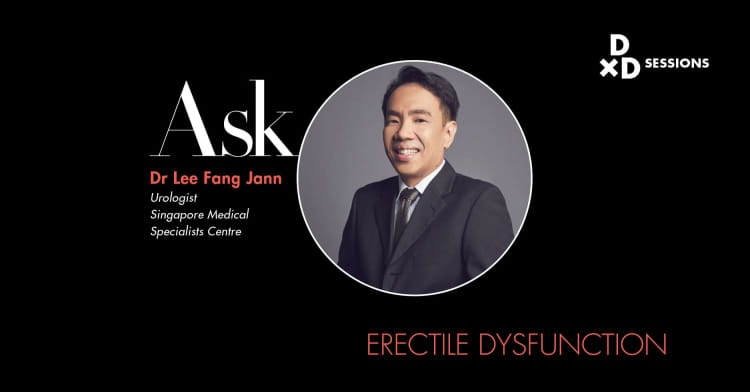Erectile dysfunction is a condition that affects not just the man involved but also his partner. It affects his self-esteem and his relationship with his partner.
The treatment of erectile dysfunction has been evolving over the past 10 years.
From an andrologist's and prosthetic urologist's standpoint, other than a couple counselling, I will focus on what I can do for the patient as a surgeon.
How I treat erectile dysfunction
It used to be the dogma that erectile dysfunction treatment has to follow a step-wise ladder kind of protocol:
- We start with lifestyle modification,
- determine if there is an underlying hormonal issue (e.g. testosterone deficiency) or undiagnosed heart disease before we even start prescribing oral medications (most common being the blue pill viagra).
- If the oral medications fail, we will offer injections and
- only if all these treatments have been exhausted can we then even mention the placement of a penile implant/prosthesis.
There is a paradigm shift in sexual medicine. The latest consensus and guidelines have mentioned that there is no need to exhaust all options before offering the man a penile implant. The need to have an erection and to be able to perform in the bedroom is different for each man. How fast he wants the treatment to work, the side effects he is able to tolerate and how badly affected the relationship is are also factors we should consider as the patient's doctor.
During the first consult in my clinic for erectile dysfunction, I would explain:
- oral medications (PDE5 inhibitors - e.g. Viagra, Cialis, Levitra) and how to use them effectively,
- penile injections (intracavernosal prostaglandins),
- use of medical-grade vacuum erection devices (as an adjunct to the medications to further improve erections).
Combination of all these different treatments is possible under a urologist's guidance.
Surgical treatment for erectile dysfunction
The true cure for erectile dysfunction would still be the placement of a penile implant/prosthesis [1]. Once the implant is placed, the erections would be guaranteed and would last as long (pun intended) as the man desires it to. It is performed as a day surgical procedure under anaesthesia and the device can be activated 6 weeks after surgery. For the best results, seek medical attention with a prosthetic urologist as not all urologists would perform this procedure.
Non-surgical treatment for erectile dysfunction
The other potential cure of erectile dysfunction would be low-intensity extracorporeal shockwave treatment (LiESWT) where we deliver shocks to the penis to cause the growth of new blood vessels to improve blood circulation to the penis, hence improving the strength of the erections [2]. LiESWT is performed in the urologist's office with minimal discomfort. Not all patients will get good results with this treatment and assessment by a urologist is recommended.
References:
1. Rodriguez KM, Kohn TP, Davis AB, Hakky TS. Penile implants: a look into the future. Translational Andrology and Urology. 2017;6(S5):S860-S866. doi:10.21037/tau.2017.05.28
2. Gruenwald I, Appel B, Kitrey ND, Vardi Y. Shockwave treatment of erectile dysfunction. Therapeutic Advances in Urology. 2013;5(2):95-99. doi:10.1177/1756287212470696



